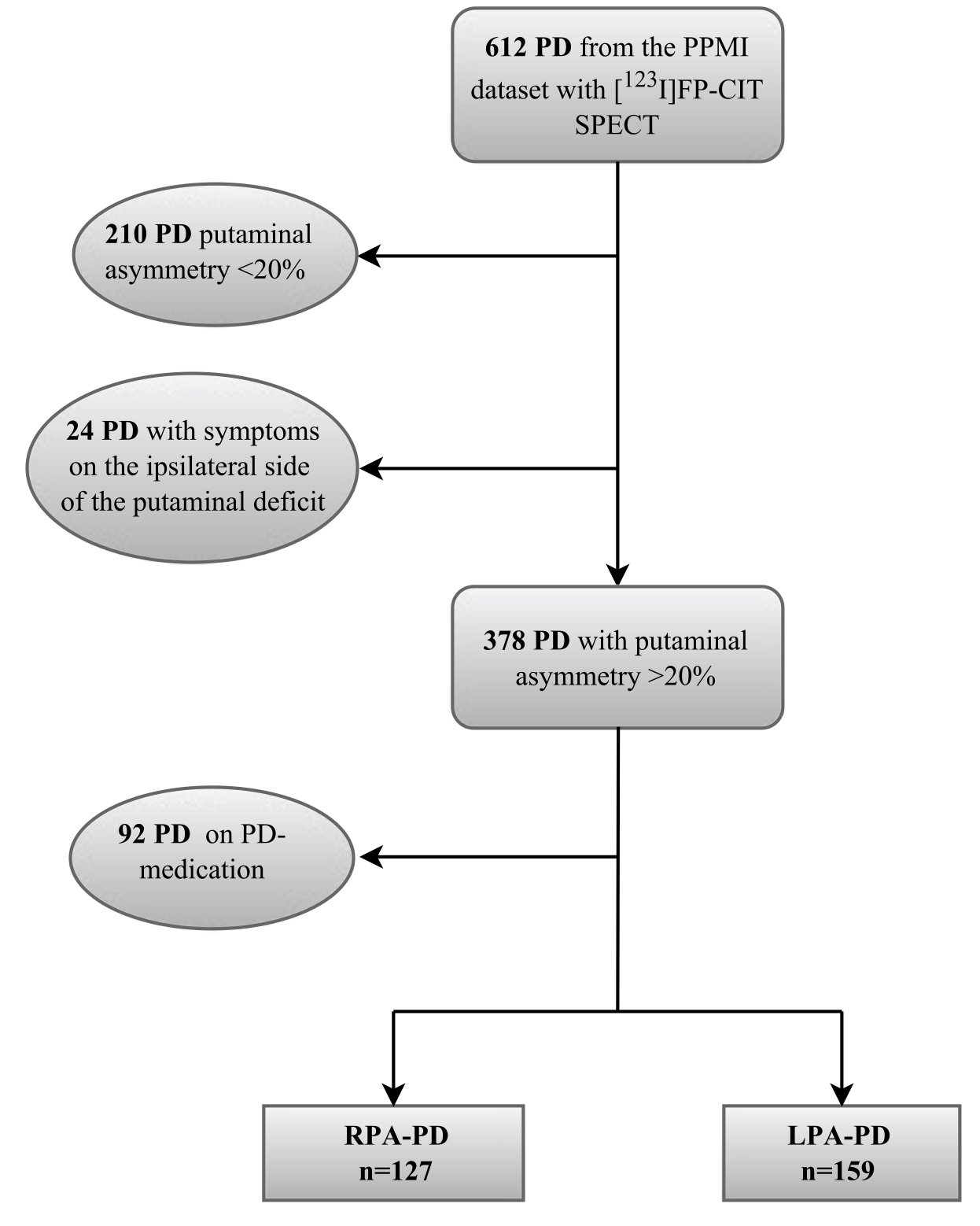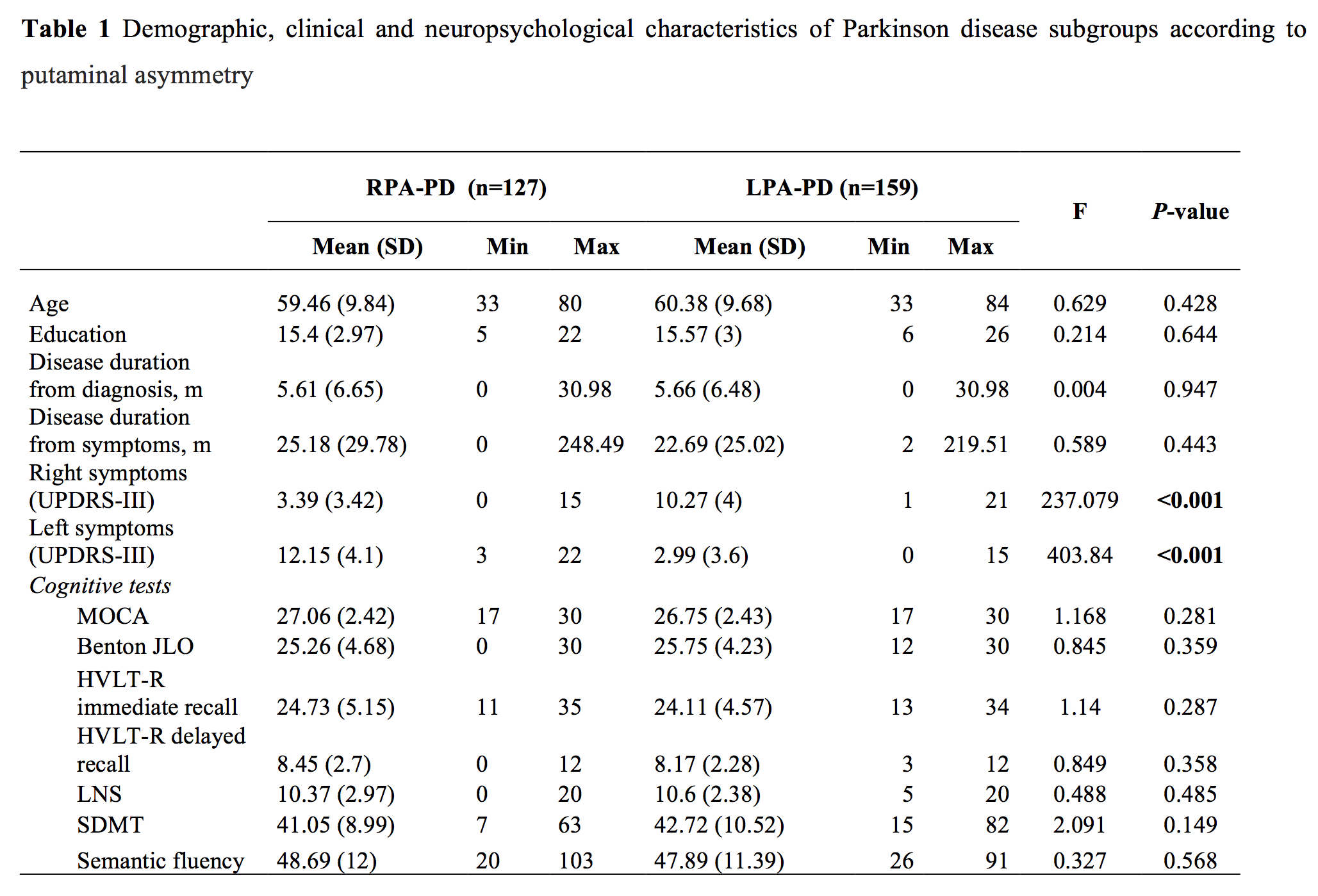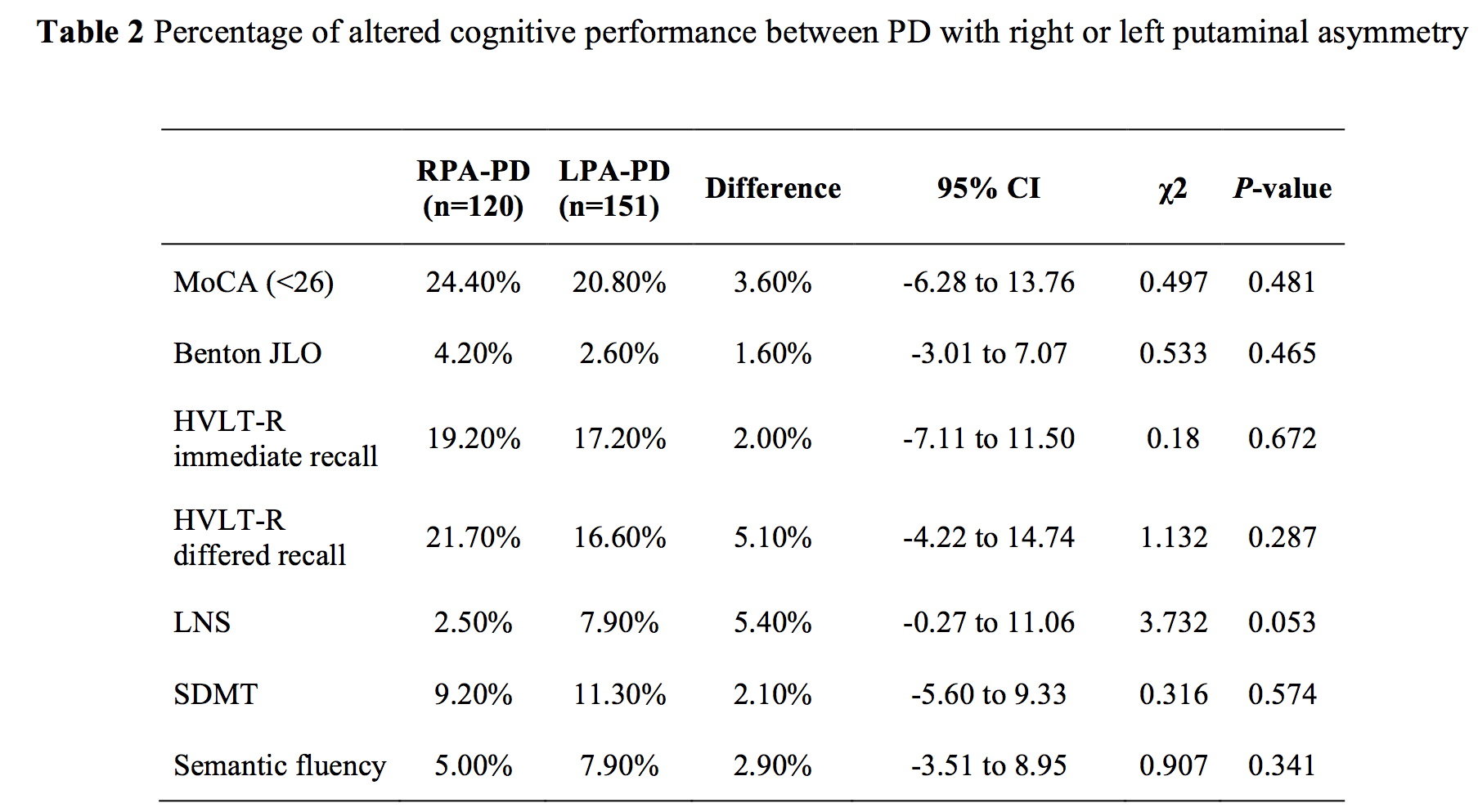Session Information
Date: Monday, October 8, 2018
Session Title: Parkinson's Disease: Cognition
Session Time: 1:15pm-2:45pm
Location: Hall 3FG
Objective: To explore the role of motor asymmetry on cognition in early stage Parkinson’s disease (PD).
Background: PD is characterized by asymmetric motor onset which is associated with strong asymmetric nigro-striatal dopaminergic dysfunction. However, if right or left asymmetry contributes differently to cognitive performance has yielded contradictory results (Verreyt et al., 2011).
Methods: From a sample of 612 PD patients from the Parkinson’s Progression Marker Initiative (PPMI), we included 378 PD that had [123I]FP-CIT single-photon emission computed tomography (DaTscan) and presented with marked putaminal asymmetry index >20% at the baseline visit. Further, we excluded 92 patients that were on PD medication (see flow-chart [figure1]). Patients were divided according to the putaminal asymmetry in left vs. right-putaminal asymmetry (LPA vs RPA). We analyzed clinical and neuropsychological data available in PPMI dataset in these patients. Global cognition was evaluated using Montreal Cognitive Assessment (MoCA), memory with Hopkins Verbal Learning Test-Revised (HVLT-R), visuospatial function with Benton Judgment of Line Orientation (JLO), attentive and executive functions with Symbol-Digit Modalities Test (SDMT), working memory with Letter-Number Sequencing (LNS) and language abilities with the semantic fluency test. All the tests were corrected according to the published norms. Striatal binding ratio (SBR) was calculated for the left and right caudate and putamen separately, using the occipital lobe as a reference region.
Results: We found no differences on clinical, demographic and cognitive features between LPA-PD and RPA-PD patients [table1]. However, LPA-PD showed a trend for worse performance (p= 0.053) on working-memory tasks (as assessed by the LNS test) compared to RPA-PD [table2].
Conclusions: Asymmetric striatal dopaminergic degeneration seems to be weakly associated with frontal-executive cognitive functions although more extensive assessment may better identify subcortical alterations. Overall, our findings support the concept that additional neurodegenerative mechanisms contribute to cortical cognitive alternations in the early disease stages.
References: Verreyt, N., Nys, G. M., Santens, P., & Vingerhoets, G. (2011). Cognitive differences between patients with left-sided and right-sided Parkinson’s disease. A review. Neuropsychology review, 21(4), 405-424.
To cite this abstract in AMA style:
R. Biundo, E. Fiorenzato, L. Weis, A. Antonini. The relationship between asymmetric dopamine loss and cognition in early Parkinson’s disease patients from PPMI study [abstract]. Mov Disord. 2018; 33 (suppl 2). https://www.mdsabstracts.org/abstract/the-relationship-between-asymmetric-dopamine-loss-and-cognition-in-early-parkinsons-disease-patients-from-ppmi-study/. Accessed February 15, 2026.« Back to 2018 International Congress
MDS Abstracts - https://www.mdsabstracts.org/abstract/the-relationship-between-asymmetric-dopamine-loss-and-cognition-in-early-parkinsons-disease-patients-from-ppmi-study/



